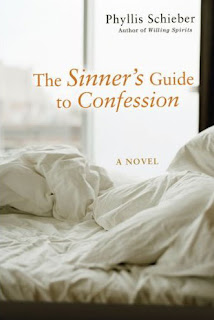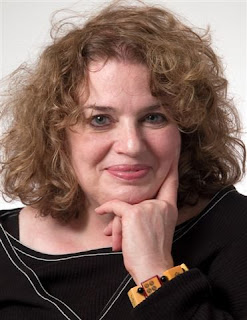
Without further ado, here’s my interview with Phyllis:
1. Most writers will read inspirational/how-to manuals, take workshops, or belong to writing groups. Did you subscribe to any of these aids and if so which did you find most helpful? Please feel free to name any “writing” books you enjoyed most (i.e. Bird by Bird by Anne Lamott).
I think writing groups are great. I studied writing with the late Hayes Jacobs at The New School for Social Research. In fact, I wrote Willing Spirits, my novel that will be re-released in paperback this coming March, in Hayes’s class. I took several writing classes with him and then applied to his seminar. I remained in that seminar for almost ten years.
I used Elizabeth Benedict’s The Joy of Writing Sex when I was working on The Sinner’s Guide to Confession. I’ve read many books about writing, such as Writing Fiction by R.V Cassill, Fiction Writer’s Handbook by Hallie and Whit Burnett, A Writer’s Life by Annie Dillard, On Writing by Eudora Welty, and I loved Bird by Bird by Anne Lamott.
These are some great books for writers to check out. Many of us have read Bird by Bird by Anne Lamott, but I would love to pick up some of these other fiction writing handbooks. Thanks for the recommendations, Phyllis.
2. A great deal of writing advice suggests that amateur writers focus on what they know or read the genre you plan to write. Does this advice hold true for you? How so (i.e. what authors do you read)?
I was an English major in college, so I’ve read all the classics, of course. I also have an M.A. in Literature, so I’ve covered a lot of ground. I love Carol Shields, Fay Weldon, Shirley Hazzard, Alison Lurie, Anne Tyler, Alice Hoffman, Dorothy Allison and Jane Smiley. I seem to be drawn to women writers. I have read and loved Richard Yates, the short stories of Gabriel Garcia Marquez and Yasunari Kawabata. I love different works for different reasons.

I do listen to music when I write, bit it’s typically classical. It doesn’t distract me. I can listen to the same CD all day. In fact, I can listen to it all week or all month. I just push replay. I like Bach and Mozart. But I also love the soundtrack to the movie Frida and the soundtrack to The Piano. I listen to Andrea Bocelli because his voice is so sweet. And sometimes I’m in the mood for Otmar Liebert, an amazing guitarist. I also listen to opera as well. My son is studying voice with the intent to be an opera singer, so I am trying to hone my taste and knowledge of opera.
I tend to have opera or classical music on when writing poetry. It seems to inspire me, though I prefer Dvorak. I do love Bocelli’s voice.
4. In terms of friendships, have your friendships changed since you began focusing on writing? Are there more writers among your friends or have your relationships remained the same?
I dedicated The Sinner’s Guide to Confession to “Everyone who asked.” It was sort of a jab at the people who never ask me about my writing and a tribute to those who do. I have a few friends who are writers, not many. Most of my friends are not writers. However, I have some really good friends who never ask about my work. That amazes me. I think it’s because they don’t know what to ask. They don’t understand that you ask about writing the same way you would ask about any job. “So, how’s your work going?” That’s all it takes. I’ve more or less trained my closest friends to ask me about my work the same way I would ask about their jobs. I think those relationships have grown. Two of the four people who read for me are not writers, and their insights and criticisms are extremely helpful.
I wonder if non-writer friends are afraid that writing is too personal to ask about or that they feel writing is just a hobby? An interesting question.
5. How do you stay fit and healthy as a writer?
I don’t. I try to, but I struggle. I am just getting back to yoga. I have a stationary bike that I do get up and use when I am writing for a long stretch. I’ll do ten minutes on the bike. I like to put my legs up against the wall periodically and stretch out. Yoga is the best exercise for me. I also take twenty minute naps at intervals. I just stretch out on the floor in my office, and I’m out. I love those naps.
6. Do you have any favorite foods or foods that you find keep you inspired? What are the ways in which you pump yourself up to keep writing and overcome writer’s block?
Perseverance is the only way to overcome writer’s block. If you wait for the muse to sit on your shoulder, you’re in trouble. I find that the more I write, the less I have writer’s block. Food doesn’t inspire me. I like to eat because it tastes good. I like coffee when I write and tea and soup, but only if it’s homemade. That’s easy to eat while I’m working. Otherwise, I’ll take a break and have something.
7. Please describe your writing space and how it would differ from your ideal writing space.
I’m happy with my writing space. We converted half the garage into an office for me. It’s quite nice with floor to ceiling built-in bookcases, lots of framed posters and photographs on the wall. I have an old armoire that I use as a storage unit. I have a nice big chair for reading, an old desk and a great Herman Miller chair. It’s a nice office, very comfortable. I have one window, but I usually keep the shade drawn because I am too easily distracted. In my other house, my office was in a space in a converted attic, really high up. I liked that a lot too.
Thanks to Phyllis for joining us. I wish her well with her latest novel and her future projects.
 Nikki Leigh contacted me about hosting
Nikki Leigh contacted me about hosting 



